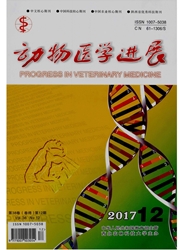

 中文摘要:
中文摘要:
蛋白质组学是以蛋白质组为研究对象,从整体、动态和定量的角度去研究基因的功能,是后基因组计划的一个重要组成部分。与基因组学相比,蛋白质组学更能从细胞和生命的整体水平上阐明生命现象的本质和活动规律,因此受到了各国学者的高度重视。蛋白组学的发展离不开其相关实验技术的突飞猛进,这些技术不仅可以进行蛋白质的分离和鉴定,还可以进行目的蛋白的筛选和样品的分析,为生命科学领域相关研究提供了新的思路和解决办法。论文主要综述了包括双向电泳、免疫共沉淀、酵母双杂交、蛋白质芯片及同位素标记相对和绝对定量技术等蛋白质组学实验技术的原理及特点,并概述了这些技术在生命科学中的重要应用。
 英文摘要:
英文摘要:
Proteomics takes proteome as the research object,and studies the functions of genes from a w hole,dynamic and quantitative view point.It is an important part of the post genome project.Compared with genomics,proteomics can clarify the nature and activity patterns of biological phenomena from the o-verall level of cells and life better,therefore subjects to the attention of scholars.The development of pro-teomics is inseparable from its experiment technologies'advances. These techniques can not only isolate and identify proteins,but also screen the purpose protein and analyze samples,therefore provide new ideas and solutions for the life science researches.This article mainly reviewed the principles and characteristics of the proteomics experiment technologies and their important applications in life sciences,such as two-di-mensional electrophoresis (2-DE),co-immunoprecipitation,yeast two-hybrid system,protein microarray technique and isobaric tags for relative and absolute quantitation (iTRAQ).
 同期刊论文项目
同期刊论文项目
 同项目期刊论文
同项目期刊论文
 Fluoride-induced oxidative stress is involved in the morphological damage and dysfunction of liver i
Fluoride-induced oxidative stress is involved in the morphological damage and dysfunction of liver i Effect of diclazuril on intestinal morphology and SIgA expression in chicken infected with Eimeria t
Effect of diclazuril on intestinal morphology and SIgA expression in chicken infected with Eimeria t A novel serine/threonine protein phosphatase type 5 from second-generation merozoite of Eimeria tene
A novel serine/threonine protein phosphatase type 5 from second-generation merozoite of Eimeria tene 期刊信息
期刊信息
